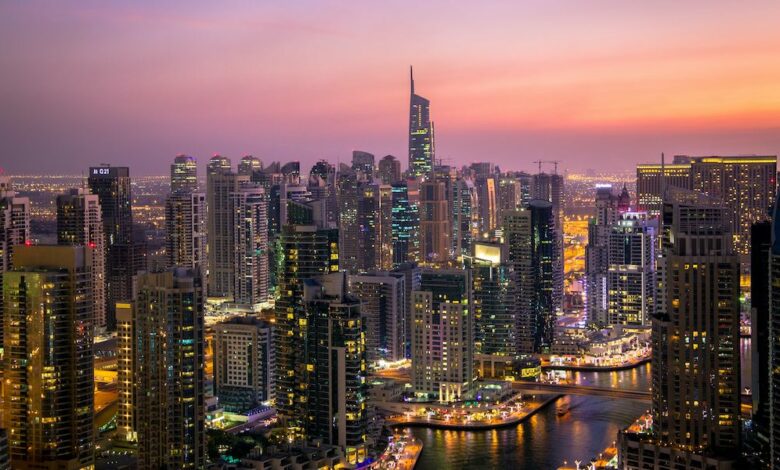
COP28’s debatable influence on shipping stirs controversy
Dubai airport has rolled out the red carpet today for a host of dignitaries flying in for COP28, the annual United Nations Climate Change Conference.
The shipping industry will be watching on to see what concrete comes out of the 12 days of talks. The sector has had a growing presence in recent COP meetings, most notably the green shipping corridor initiative at the meet-up in Scotland in 2021, however, campaigners argue that this year’s showcase in the oil-rich emirates is unlikely to deliver meaningful direction on shipping’s path to decarbonisation.
The event already aroused significant controversy when it was reported earlier this week that host United Arab Emirates plans to use the Dubai summit to discuss oil and natural gas deals with several countries.
Leaving for the UAE this morning, Madadh MacLaine, secretary-general of the Zero Emissions Ship Technology Association (ZESTAs), lamented the fact that as shipping was not included in the Paris Agreement, there was little chance any tangible requirements would be placed on shipping in Dubai.
“I anticipate more announcements and empty words,” MacLaine told Splash. “Any real action on emissions reductions from shipping will come when we have fine-tuned the regulatory instruments at the International Maritime Organization (IMO) to harmonise with the revised strategy delivered at the Marine Environment Protection Committee (MEPC) this July.”
Jan Hoffman, head of the trade logistics branch at the United Nations Conference on Trade and Development (UNCTAD), was more diplomatic when contacted today, telling Splash: “It is good to see that maritime transport is in recent years more prominently featured at COP. At the same time, I have found that sometimes the same member states that support ambitious goals and commitments at COP then find it difficult to agree on how to achieve these when it comes to the more technical negotiations at the IMO.”
Nick Brown, the CEO of Lloyd’s Register and current chairman of the International Association of Classification Societies (IACS), argued that COP28 serves as a “prime opportunity” for governments and industry to form partnerships and incentives to accelerate infrastructure investment and support in the development of a secure low and zero carbon fuel supply chain.
“Our collective success on meeting the rapidly approaching 2030 targets will depend on our ability to collaborate with stakeholders from across the maritime value chain and to embrace the opportunities afforded by the energy transition,” Brown said.
Steven Jones, recently installed as the CEO of the Sustainable Shipping Initiative, said COP28 will be an opportunity for shipping to reach out to a wider community.
“From a pragmatic perspective, this is a global stage where we’ll see signals and trends emerge on future fuels, green corridors, as well as financing opportunities,” Jones said.
Dr Tristan Smith from UCL Energy Institute, which runs UMAS, a commercial advisory service, pointed towards analysis he and his team have recently concluded which shows there are scenarios where the supply of hydrogen-derived fuels is on track for the IMO’s ambitions for a 2030 target of 5% striving for 10% of zero and near-zero emission fuel.
“COP is a great opportunity to sense check how wider players in the energy system are perceiving shipping, especially since the MEPC 80 outcome, and if they have yet realised it is an obvious keystone/foundation for any national hydrogen strategies,” Smith said.
Aoife O’Leary, founder of the Skies and Seas Hydrogen-fuels Accelerator Coalition (SASHA) Coalition, agreed with Smith.
“We’re expecting at least some of the spotlight to be – justifiably – fixed on green hydrogen during COP28,” she said, maintaining it was critical to “priority set” and ensure shipping is at the “top table” when it comes to accessing the quantities of green hydrogen required to produce green methanol and ammonia.
“Indiscriminate use of green hydrogen could slow down the energy transition,” O’Leary warned urging shipping to coordinate with aviation counterparts to secure enough of the prized fuel.
Splash will be bringing readers updates from COP28 through to December 12.